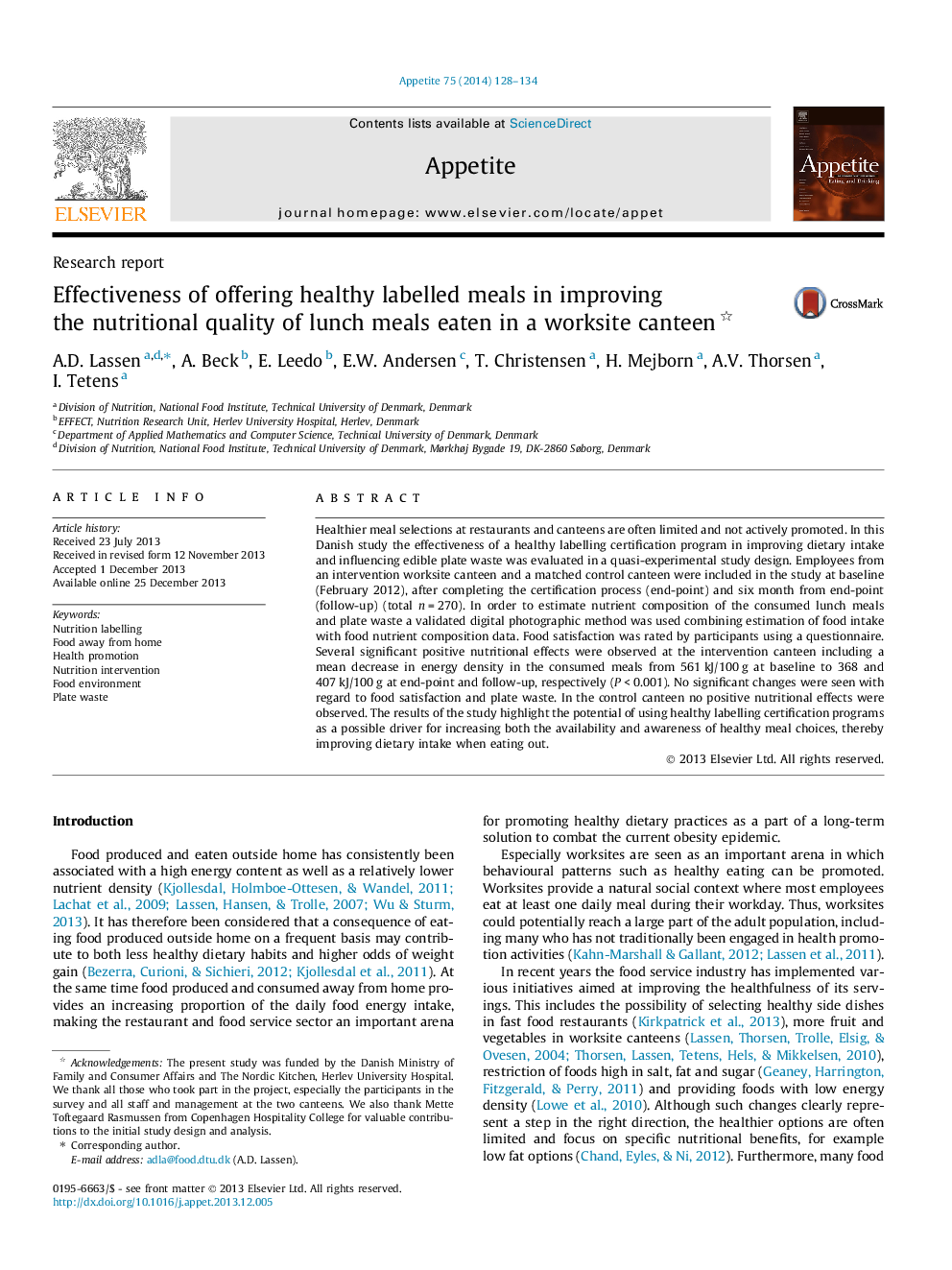| Article ID | Journal | Published Year | Pages | File Type |
|---|---|---|---|---|
| 7310437 | Appetite | 2014 | 7 Pages |
Abstract
Healthier meal selections at restaurants and canteens are often limited and not actively promoted. In this Danish study the effectiveness of a healthy labelling certification program in improving dietary intake and influencing edible plate waste was evaluated in a quasi-experimental study design. Employees from an intervention worksite canteen and a matched control canteen were included in the study at baseline (February 2012), after completing the certification process (end-point) and six month from end-point (follow-up) (total n = 270). In order to estimate nutrient composition of the consumed lunch meals and plate waste a validated digital photographic method was used combining estimation of food intake with food nutrient composition data. Food satisfaction was rated by participants using a questionnaire. Several significant positive nutritional effects were observed at the intervention canteen including a mean decrease in energy density in the consumed meals from 561 kJ/100 g at baseline to 368 and 407 kJ/100 g at end-point and follow-up, respectively (P < 0.001). No significant changes were seen with regard to food satisfaction and plate waste. In the control canteen no positive nutritional effects were observed. The results of the study highlight the potential of using healthy labelling certification programs as a possible driver for increasing both the availability and awareness of healthy meal choices, thereby improving dietary intake when eating out.
Keywords
Related Topics
Life Sciences
Agricultural and Biological Sciences
Food Science
Authors
A.D. Lassen, A. Beck, E. Leedo, E.W. Andersen, T. Christensen, H. Mejborn, A.V. Thorsen, I. Tetens,
